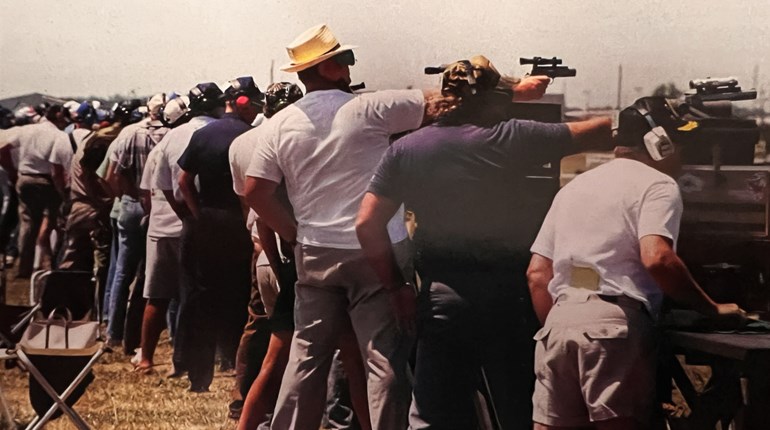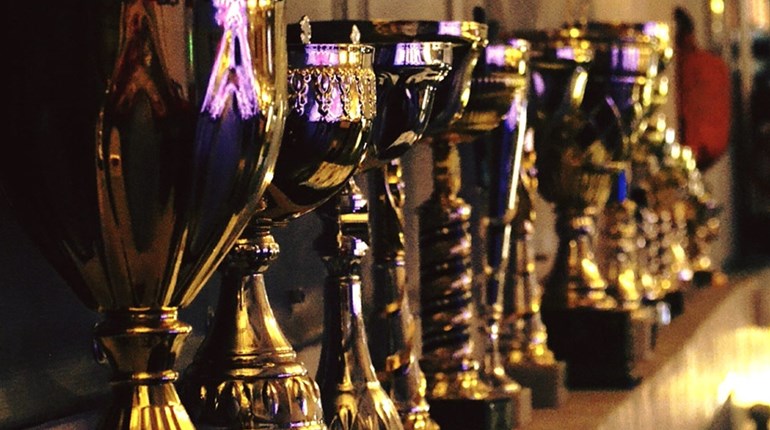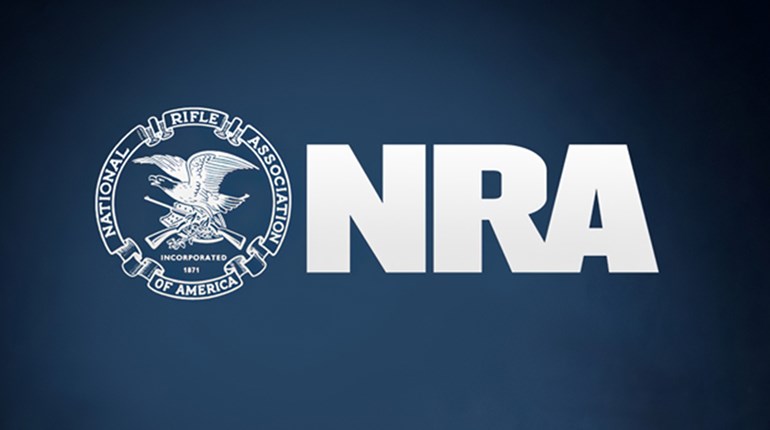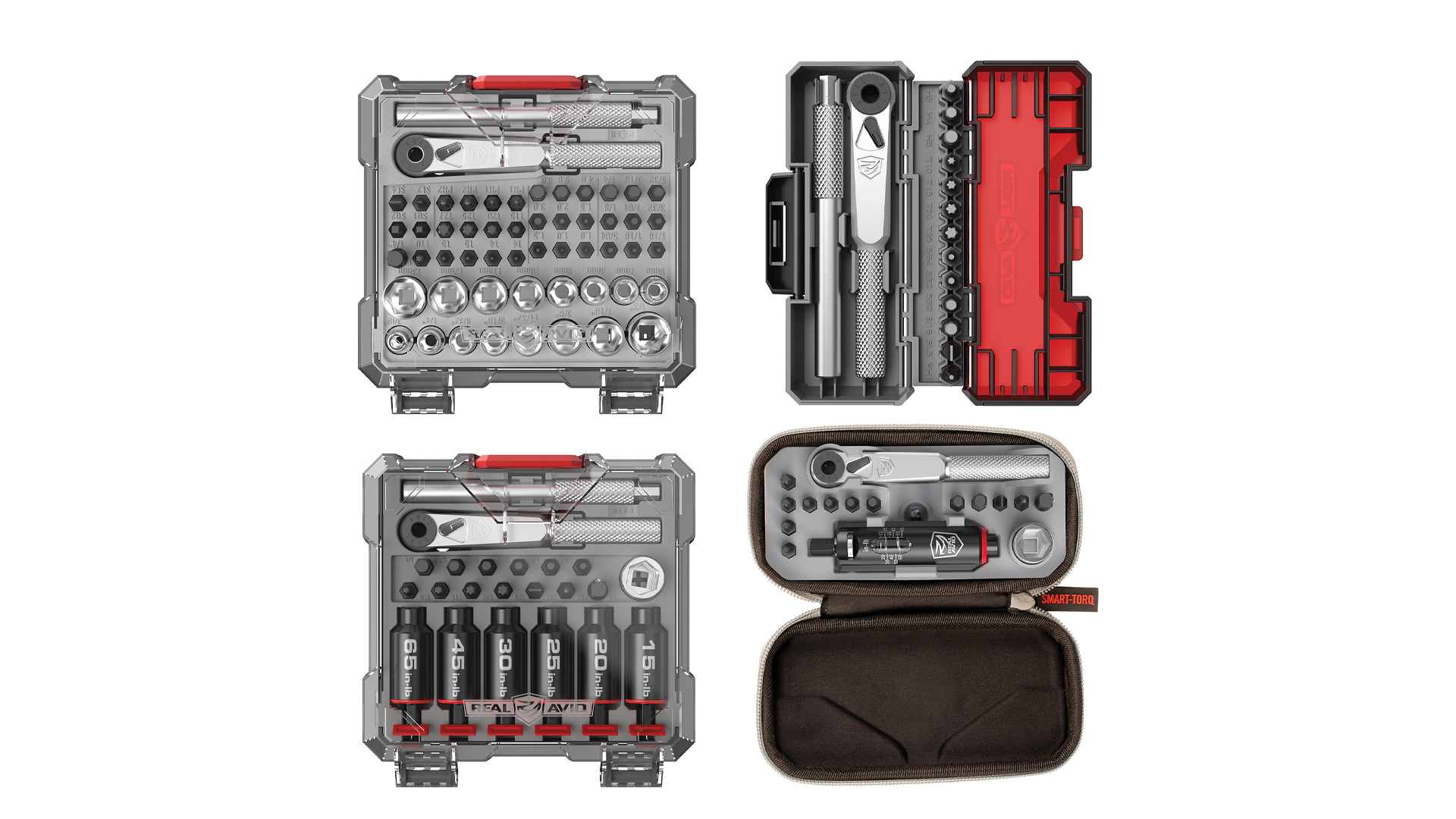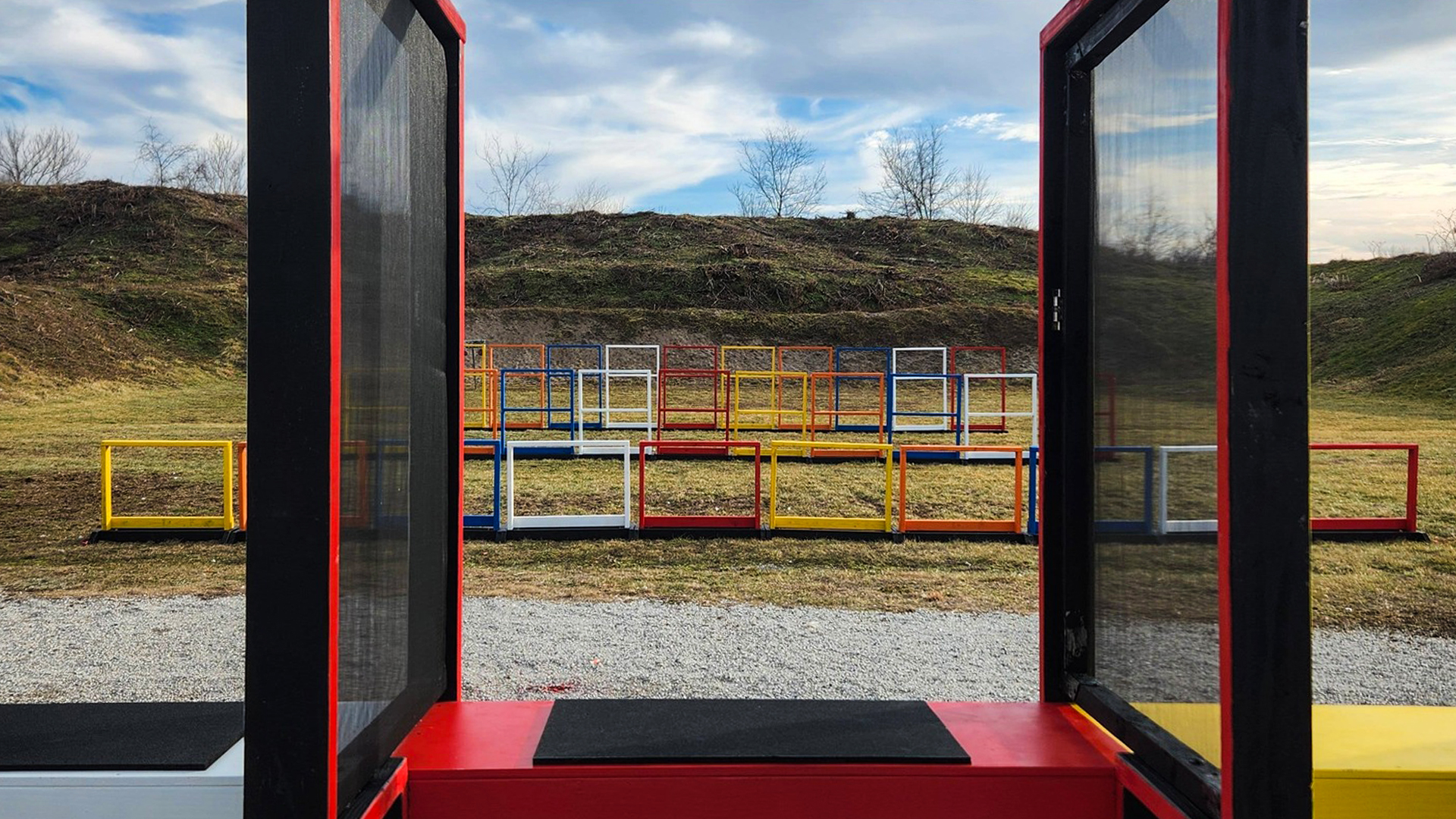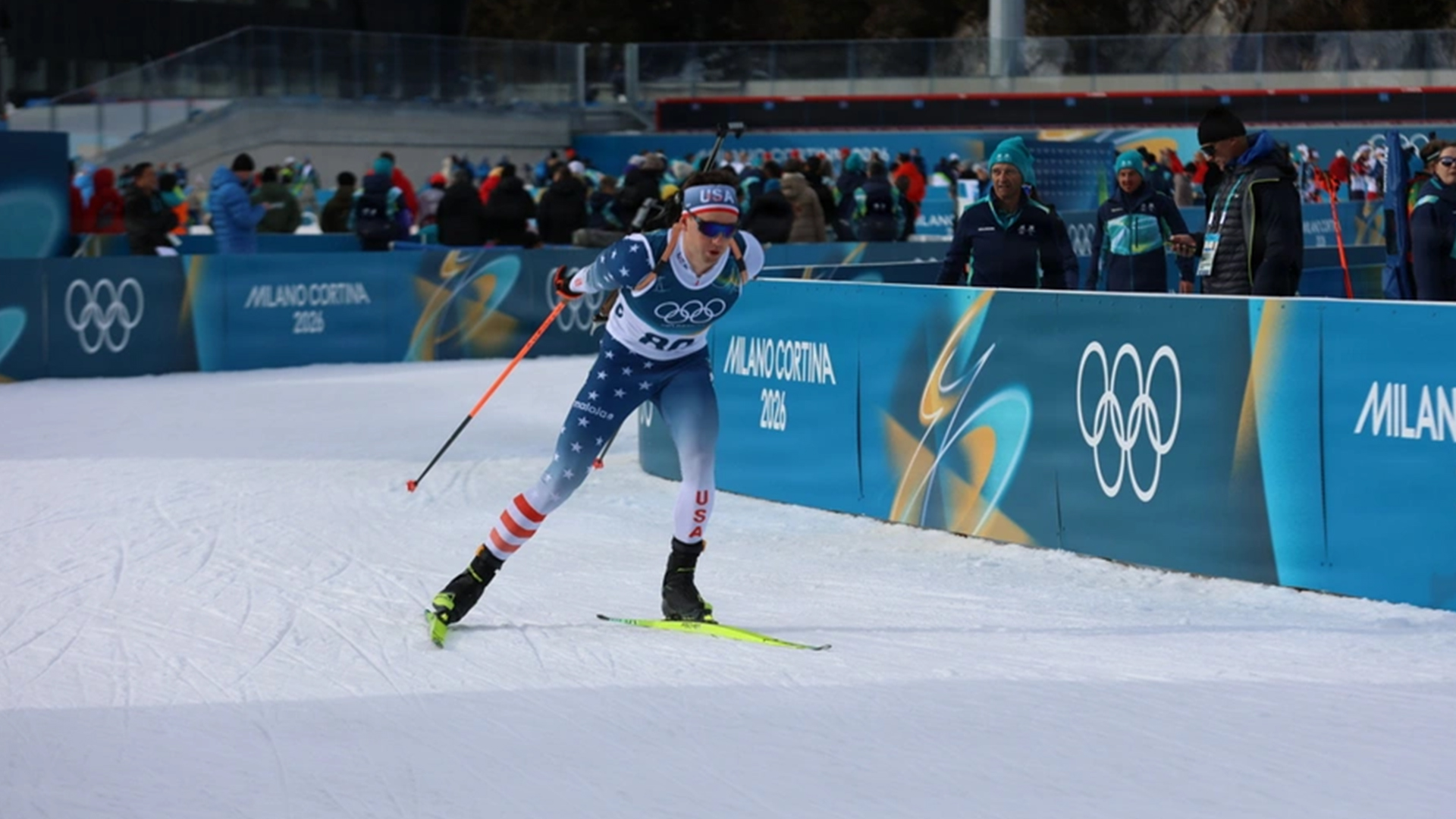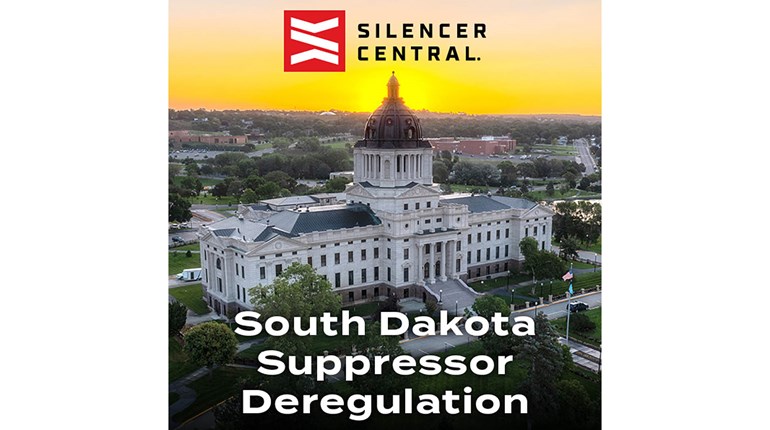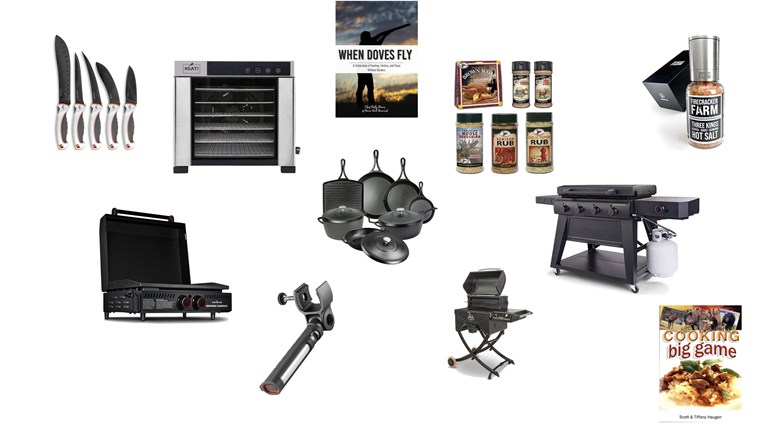
From the vault: An article about volunteers at the NRA National Matches penned by John Hartsock. In 2002, Hartsock had served for 20 years as a volunteer and was working as the chief range officer for the NRA National Pistol Championship at that time. As published in the June 2002 issue of Shooting Sports USA.
The Other National Matches Experience: The Camp Perry Volunteers
By John Hartsock
The NRA National Matches at Camp Perry, Ohio, are a series of events of mammoth proportions. Hundreds, sometimes thousands, of shooters step up to the firing line to prove their mettle nearly every day for more than a month and a half. As each championship unfolds, high power targets flow up and down in the pits, pistol scores rapidly appear on the board, and the sound of the smallbore range goes from library to popcorn popper on a single command.
But what does it take to operate these national matches? More than anything else, it’s people. It’s folks who are interested in shooting and are willing to spend a few days making the NRA National Matches the center of the shooting world.
Since 1968, the NRA and NRA volunteers have conducted the matches. Military support for running the matches has decreased to military policemen, medics, communications personnel and the regular Camp Perry staff. The few members of the paid staff are those from NRA Headquarters and the Civilian Marksmanship Program. Everyone else is a volunteer—and it’s the volunteers who make the NRA National Matches happen.
The volunteers work on the ranges, in the statistical office, on the scoring, at the sales counters, on the air gun range and at the bulletin board. All of the staff, from the match director down to the line officer—including range director, chief range officers, assistant chief range officers, tower talkers, referees, block officers, line officers, pit officers, pit talkers and score card runners—are volunteers. Hours vary based upon job assignment, but you’ll find volunteers carrying out their duties from the crack of dawn until long after the last shot is fired each day, regardless of weather conditions or other factors.
There is no single profile of volunteer staff. The only requirement to become a volunteer is a minimum age of 14. They are of all ages, from all walks of life, including teenagers, retirees, teachers, retired military personnel, active and retired law officers, shooters in other disciplines, former shooters, instructors, coaches, referees, range directors, family and friends of competitors, and the list goes on. They come from all over the country, some work only one phase of the matches and others spend the duration of the NRA National Matches working one position or another at Camp Perry.
They are folks like Sue Engle, a grandmother of five from the Seattle, Washington, who first came to the NRA National Matches seven years ago with her boyfriend, a competitor, and started working as a line officer—and she now works as a tower talker during pistol. Two first-time volunteers last year, Stephen and Gale Hogan from Cranston, Rhode Island, came to work pistol and had so much fun they stayed to work the high power rifle phases. Bob and Connie Taylor from California not only work as the assistant chief pit officer and block officer, respectively, during high power, but also bring junior shooters with them each year. Chuck Delano, Jr., is a 14-year volunteer from Florida who starts with the muzzleloading matches as a tower talker and then works pistol as an assistant chief range officer, back to tower talker for smallbore and continues as the chief range officer on Viale Range for high power. Jim Hartsock, the chief range officer for pistol for the past 25 years, first came to the NRA National Matches to learn by watching the “pros.”
The compensation package for these hard-working volunteers consists of sleeping quarters, a per diem for meal expenses, the knowledge that they’ve helped make the matches a success, and a sense of doing a job that’s appreciated.
“Volunteering gives you a real sense of doing your part to help keep the shooting sports alive,” Gary Mohrbacher said. “The people you meet and the good times you will have are memories that last a lifetime.”
Frequently, a pat on the back or a thank you from a competitor makes a 10-hour workday worthwhile. Tim Pawol, a nine-year volunteer tower talker and referee, has a different perspective. “I find it personally fulfilling to experience what a small group of pure volunteers can accomplish when they act for a common purpose,” he said.
Even if you don’t know anything about pistol because you shoot high power for example, there’s no problem because you’ll be trained for that event.
The NRA National Matches volunteers are like a big family, everyone looks forward to seeing old friends each year as well as getting to know new friends.
“It’s like having this huge second family,” Engle said. “I come back to find people I’ve only met once call me by name. This keeps me coming back year after year.”
“I want to give back to the sport that has given me so much,” Jon Nortemann said. “I like the place, the people and the activities that are part of the whole experience.”
Unfortunately, the number of new friends in our volunteer group has been declining while the number of competitors has been increasing. The NRA National Matches need your help. In 2001, there were barely enough volunteers to run all of the pistol ranges. High power operated short-staffed also.
Interested in volunteering at the NRA National Matches, or at other tournaments like the NRA World Shooting Championship? Visit the NRA Competitive Shooting Division website: competitions.nrahq.org.













